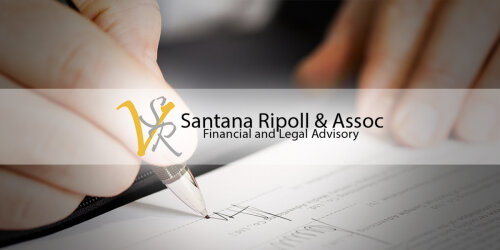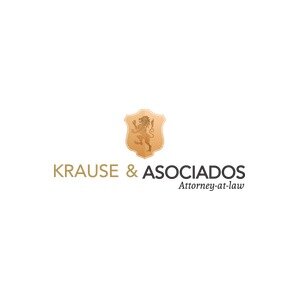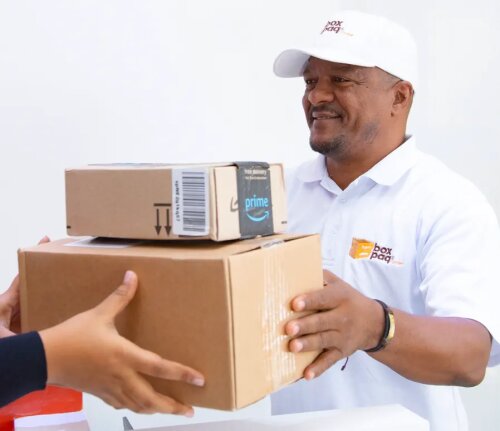Best Sanctions & Export Controls Lawyers in Puerto Plata
Share your needs with us, get contacted by law firms.
Free. Takes 2 min.
List of the best lawyers in Puerto Plata, Dominican Republic
About Sanctions & Export Controls Law in Puerto Plata, Dominican Republic
Sanctions and export controls law deals with the rules and restrictions imposed by governments to regulate trade, financial transactions, and the transfer of goods, technology, or services. In Puerto Plata, Dominican Republic, these laws are shaped by both national legislation and adherence to international agreements. They aim to prevent illicit trade, protect national security, uphold international commitments, and ensure that local businesses and individuals comply with global standards. Understanding these regulations is crucial for anyone involved in international commerce, travel, or financial dealings in the region.
Why You May Need a Lawyer
Many situations can lead to the need for a lawyer experienced in sanctions and export controls. You might require legal help if you are exporting goods or services from Puerto Plata, doing business with parties in sanctioned countries, or transferring technologies that may be subject to restriction. Legal support is also essential if you are facing government investigations, have questions about licensing requirements, or are concerned about compliance with evolving national and international laws. A lawyer can assist with reviewing contracts, applying for necessary permits, responding to compliance checks, and defending your interests in case of alleged violations.
Local Laws Overview
In Puerto Plata, enforcement of sanctions and export controls is primarily governed by national Dominican Republic legislation, and, to some extent, by international agreements to which the country is a signatory. The Ministry of Foreign Affairs and the Tax and Customs Authority (Dirección General de Aduanas) are the main regulatory agencies. Specific laws prohibit trade with certain countries, individuals, or entities subjected to international sanctions. There are also controls on the export of sensitive goods, technology, and dual-use items that could have military applications. Local businesses must ensure they are not inadvertently breaching these laws, as penalties may include fines, confiscation of goods, or even criminal charges.
Frequently Asked Questions
What are sanctions and export controls?
Sanctions are specific government-imposed restrictions on trade, finance, or interactions with individuals, countries, or entities as a form of foreign policy. Export controls regulate the movement of certain goods, services, or technology across borders to protect security and international obligations.
Who regulates sanctions and export controls in Puerto Plata?
The main agencies are the Dirección General de Aduanas (Customs Authority) and the Ministry of Foreign Affairs. They are responsible for enforcing both domestic and international sanctions and export regulations.
Do the laws only apply to businesses, or do individuals also need to comply?
Individuals, as well as businesses, must comply with sanctions and export controls. Non-compliance by any person can result in severe legal consequences.
What types of goods are commonly subject to export controls?
Typical items include technology, software, dual-use goods (which can have both civilian and military use), chemicals, medical equipment, and certain agricultural products.
Can my business export to any country from Puerto Plata?
No. Exports to sanctioned countries or restricted entities are prohibited unless you have specific authorization from authorities. It is essential to check updated lists before engaging in international trade.
How can I find out if a person or company is subject to sanctions?
The Dominican authorities maintain and publish updated lists of entities and individuals under sanctions. Consulting with legal professionals or directly checking with relevant authorities is advised.
What are the penalties for violating sanctions or export controls?
Penalties range from administrative fines to confiscation of goods, loss of business licenses, and criminal charges, depending on the severity of the violation.
Is there a process for obtaining a license to export restricted goods?
Yes. Certain goods may require an export license from the relevant government agency. The application process involves disclosing shipment details, end users, and destinations.
How often do sanctions and export control lists change?
Lists can change frequently in response to international events or diplomatic decisions. Regular checks and ongoing compliance efforts are necessary.
What should I do if I believe I have violated a sanction or export control regulation?
Seek legal advice immediately. A lawyer with experience in sanctions and export controls can guide you through the next steps, work to mitigate consequences, and represent you before authorities.
Additional Resources
For further information or to stay updated on regulatory changes, consider the following resources:
- Dirección General de Aduanas (Customs Authority) - Main agency for trade and customs regulations.
- Ministry of Foreign Affairs of the Dominican Republic - Oversees international agreements and sanctions lists.
- Chamber of Commerce of Puerto Plata - Can provide guidance for businesses involved in export and international trade.
- Local legal associations - Offer referrals to qualified lawyers in sanctions and export controls.
- International organizations or trade bodies - Such as the United Nations or the World Trade Organization, for reference on global norms and standards.
Next Steps
If you need legal assistance with sanctions and export controls in Puerto Plata, the following steps are recommended:
- Gather all relevant documentation about your trade, business transactions, or ongoing issues.
- Identify the specific nature of your concern, such as compliance checks, plans for export, or possible violations.
- Reach out to a lawyer specialized in international trade law or sanctions and export control regulations.
- Consult with local authorities or business chambers for additional referrals or information.
- Implement or update internal compliance procedures to avoid future issues.
Acting promptly ensures you receive accurate guidance and minimize potential legal risks. Lawyers with expertise in this field are equipped to clarify complex regulations, ensure compliance, and defend your interests if challenges arise.
Lawzana helps you find the best lawyers and law firms in Puerto Plata through a curated and pre-screened list of qualified legal professionals. Our platform offers rankings and detailed profiles of attorneys and law firms, allowing you to compare based on practice areas, including Sanctions & Export Controls, experience, and client feedback.
Each profile includes a description of the firm's areas of practice, client reviews, team members and partners, year of establishment, spoken languages, office locations, contact information, social media presence, and any published articles or resources. Most firms on our platform speak English and are experienced in both local and international legal matters.
Get a quote from top-rated law firms in Puerto Plata, Dominican Republic — quickly, securely, and without unnecessary hassle.
Disclaimer:
The information provided on this page is for general informational purposes only and does not constitute legal advice. While we strive to ensure the accuracy and relevance of the content, legal information may change over time, and interpretations of the law can vary. You should always consult with a qualified legal professional for advice specific to your situation.
We disclaim all liability for actions taken or not taken based on the content of this page. If you believe any information is incorrect or outdated, please contact us, and we will review and update it where appropriate.











